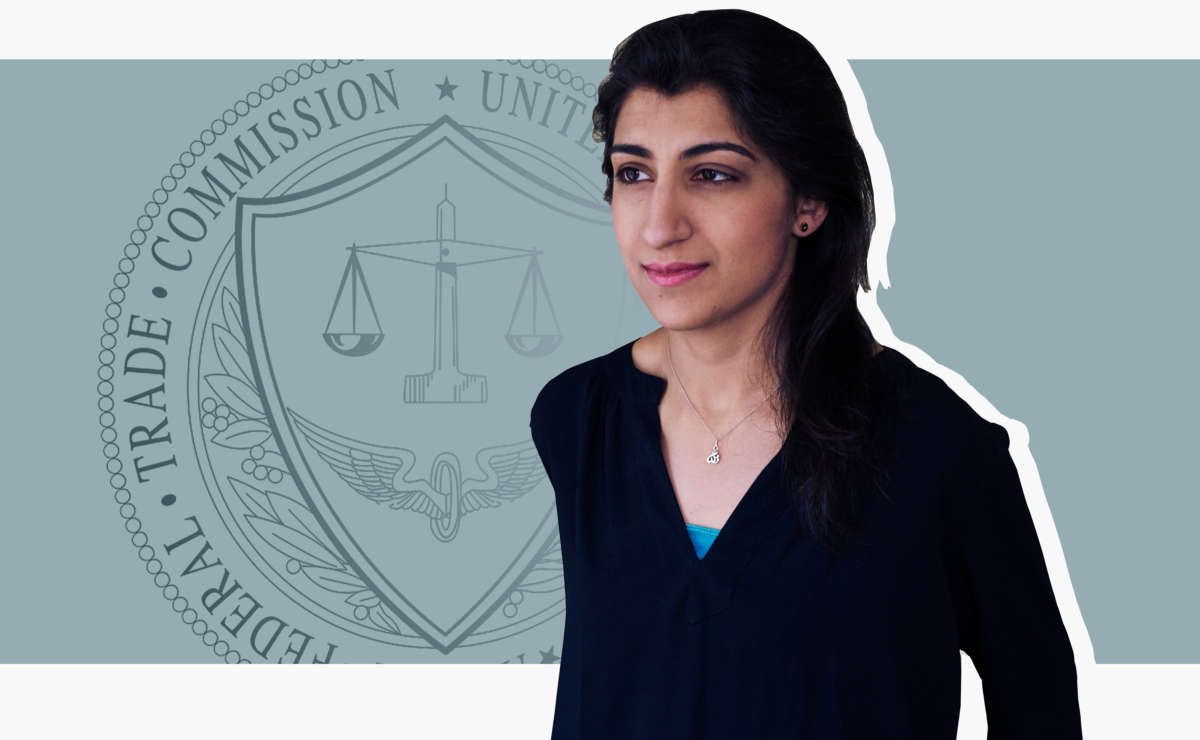Did you know that Truthout is a nonprofit and independently funded by readers like you? If you value what we do, please support our work with a donation.
President Joe Biden plans to nominate Lina Khan, a Columbia law professor and progressive champion of the antitrust movement, to the Federal Trade Commission (FTC), Politico reports. Progressives against big tech and for anti-monopolism praised this decision on Tuesday.
Khan is a “progressive superstar,” ProPublica senior reporter and editor Jesse Eisinger wrote. She first became well known in the law and big tech spheres for her 2017 article published in The Yale Law Journal, “Amazon’s Antitrust Paradox,” which challenged American antitrust law and its ability to handle companies like Amazon.
In the article, Khan argued that American antitrust laws are not equipped to handle a company like Amazon, which has monopoly-like power despite not looking like a traditional monopoly.
“In her telling, monopolies don’t just exploit consumers and workers in their part of the economy. Even when they offer low prices to consumers, their influence propagates through the entire system,” wrote The Atlantic’s Robinson Meyer in 2018.
Uncompromised, uncompromising news
Get reliable, independent news and commentary delivered to your inbox every day.
Khan’s Yale Law Journal article was praised by experts in business and law as “remarkable,” wrote one Washington Post journalist. A New York Times profile stated that Khan’s article “reframed decades of monopoly law.” When the article was published, Khan was only in her third year of law school.
Since then, Khan has emerged as a leading figure in the antitrust movement. Sarah Miller, director of the American Economic Liberties Project, called her the “intellectual architect of the bipartisan suits against Facebook and Google” in a statement on Tuesday.
Last year, the FTC and Justice Department filed antitrust suits against Google and Facebook, and big tech CEOs were grilled by Congress over their company’s wide-reaching effects on the market. When the House Judiciary Committee put forth recommendations for legislation and reforms to encourage competition, Khan helped to craft that report.
Her appointment, in combination with Biden’s pick of another outspoken antitrust lawyer, Tim Wu, as a White House economic adviser, could signal that Biden is planning to take a more aggressive stance toward big tech than his predecessors. The picks represent, as Politico wrote, “a massive shift in philosophy away from the era of Barack Obama, who proudly forged an alliance between the Democratic Party and Big Tech.”
Biden’s plans to pick Khan for one of the five FTC spots is “the biggest news in antitrust in a year already filled with antitrust news,” wrote Brian Fung, a CNN tech reporter.
Anti-monopolist Fordham law professor Zephyr Teachout wrote that Khan and Wu are “extraordinary, powerful choices by Biden. It gives hope that the last 40 years of consumer welfarism in antitrust could be on its last legs, and that we can start enforcing existing laws with vigor.” Short-term market decisions underscore current antitrust laws, due to a Ronald Reagan-era change that paved the way for thousands of mergers in the ensuing decades.
Khan, along with Wu and Vanita Gupta, a Biden pick for the Justice Department who’s also been critical of big tech, could help to usher in a new era for regulation of monopolies, progressives hope. As the Justice Democrats wrote, “This is a major progressive pick by the Biden administration to check the concentration of corporate power and uplift working families.”
Speaking against the authoritarian crackdown
In the midst of a nationwide attack on civil liberties, Truthout urgently needs your help.
Journalism is a critical tool in the fight against Trump and his extremist agenda. The right wing knows this — that’s why they’ve taken over many legacy media publications.
But we won’t let truth be replaced by propaganda. As the Trump administration works to silence dissent, please support nonprofit independent journalism. Truthout is almost entirely funded by individual giving, so a one-time or monthly donation goes a long way. Click below to sustain our work.
